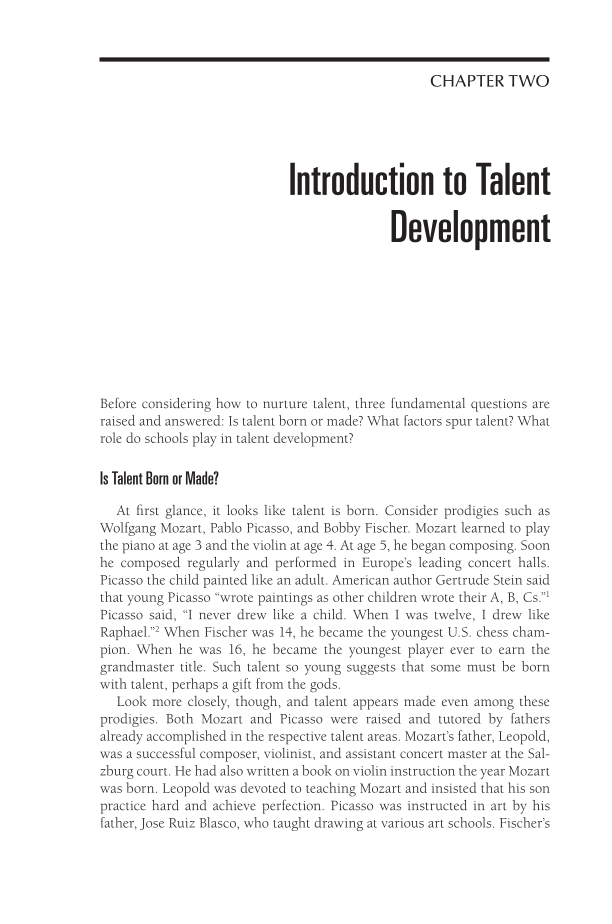chapter two Introduction to Talent Development Before considering how to nurture talent, three fundamental questions are raised and answered: Is talent born or made? What factors spur talent? What role do schools play in talent development? Is Talent Born or Made? At first glance, it looks like talent is born. Consider prodigies such as Wolfgang Mozart, Pablo Picasso, and Bobby Fischer. Mozart learned to play the piano at age 3 and the violin at age 4. At age 5, he began composing. Soon he composed regularly and performed in Europe’s leading concert halls. Picasso the child painted like an adult. American author Gertrude Stein said that young Picasso “wrote paintings as other children wrote their A, B, Cs.”1 Picasso said, “I never drew like a child. When I was twelve, I drew like Raphael.”2 When Fischer was 14, he became the youngest U.S. chess cham- pion. When he was 16, he became the youngest player ever to earn the grandmaster title. Such talent so young suggests that some must be born with talent, perhaps a gift from the gods. Look more closely, though, and talent appears made even among these prodigies. Both Mozart and Picasso were raised and tutored by fathers already accomplished in the respective talent areas. Mozart’s father, Leopold, was a successful composer, violinist, and assistant concert master at the Sal- zburg court. He had also written a book on violin instruction the year Mozart was born. Leopold was devoted to teaching Mozart and insisted that his son practice hard and achieve perfection. Picasso was instructed in art by his father, Jose Ruiz Blasco, who taught drawing at various art schools. Fischer’s
Document Details My Account Print multiple pages
Print
You have printed 0 times in the last 24 hours.
Your print count will reset on at .
You may print 0 more time(s) before then.
You may print a maximum of 0 pages at a time.

















































































































































































































